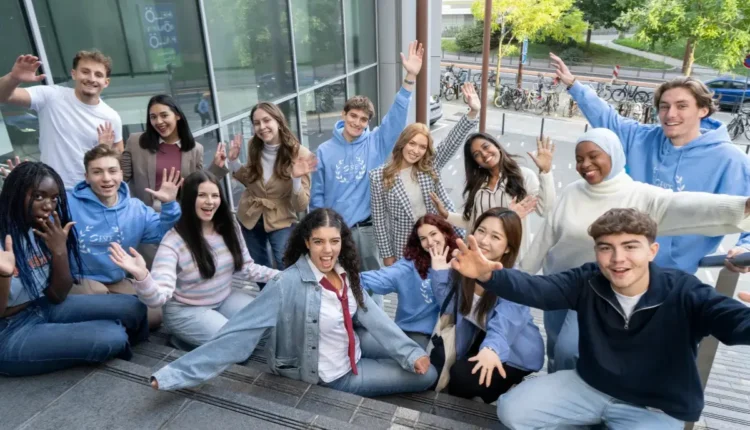Thousands of Foreign Students Win Back U.S. Visas After Court Battles
Student Visa Restoration in the United States Reverses Immigration Crackdown
In a sweeping and sudden reversal, the Trump administration has reinstated the student visa registrations of thousands of foreign students who were recently removed from a key federal tracking system due to minor or dismissed legal charges—an act widely condemned by the judiciary as unlawful and reckless.
The development marks a pivotal moment in the ongoing debate over student visa restoration in the United States, a topic that has stirred legal battles, campus chaos, and deep uncertainty for the international academic community.
On Friday, in a high-stakes federal courtroom, the Justice Department announced the reinstatement of the students’ SEVIS (Student and Exchange Visitor Information System) records, citing “intense scrutiny” and “a need to reevaluate enforcement mechanisms.” The decision follows an avalanche of more than 100 lawsuits filed by students, with judges in over 50 of those cases issuing emergency restraining orders to stop what they called a gross violation of due process.
From Panic to Relief: A Whiplash Policy Shift
Earlier this month, thousands of international students found themselves locked out of their academic futures when their SEVIS profiles were abruptly terminated without warning. For many, the move translated into the sudden loss of their legal immigration status—triggering fears of deportation, halted degrees, and shattered dreams.
“I was weeks away from defending my thesis when I received the notification,” said Nisha K., a graduate student from India. “One day I’m a researcher, the next I’m illegal.”
The terminations, largely based on flagged entries from the National Crime Information Center (NCIC), swept up students with petty misdemeanors—some as trivial as dismissed parking disputes or decades-old citations. Judges overseeing these cases didn’t mince words. In several court opinions, the government’s actions were described as “arbitrary,” “capricious,” and “administratively abusive.”
Legal Pressure Forces Government to Retreat
Faced with mounting legal pressure and the possibility of nationwide injunctions, the Justice Department finally acknowledged the overreach. In court, a DOJ attorney confirmed that Immigration and Customs Enforcement (ICE) would not terminate SEVIS records solely based on flagged misdemeanor charges or dismissed cases going forward.
“ICE is developing a policy that will provide a framework for SEVIS record terminations,” the DOJ lawyer stated. “Until such a policy is issued, the SEVIS records for plaintiffs in this case—and other similarly situated individuals—will remain active or shall be reactivated if not currently active.”
This major policy pause is expected to grant breathing room to thousands of affected students who were already teetering on the edge of immigration limbo.
Unanswered Questions Remain
However, the full scope of relief is still unclear. Officials from the State Department have not confirmed whether they will reverse the actual cancellation of F-1 visas that accompanied many of the SEVIS terminations. A federal official previously admitted that “quality control” was underway to reassess the validity of those visa cancellations.
Critics argue that the crackdown may have been politically motivated. Earlier in the year, Secretary of State Marco Rubio ordered the revocation of several student visas, accusing their holders of “disrupting U.S. foreign policy” due to their pro-Palestinian activism. The latest wave of terminations, however, cast a much wider net, ensnaring students with negligible or outdated legal issues, suggesting a deeper systemic failure.
Campuses Rebound, But Trust Is Shaken
University officials across the nation have expressed cautious optimism but also voiced deep concern over the damage done. Many schools had blocked affected students from registering for courses or conducting research until their status was clarified. For some, the disruption came mere weeks before graduation or final exams.
“This episode has done irreparable harm to our international student community,” said Dr. Leah Hammond, dean of international affairs at a major East Coast university. “The loss of trust will take years to rebuild.”
Looking Ahead: A New Policy Framework
While ICE’s forthcoming policy on visa terminations remains under wraps, legal advocates are already preparing for the next wave of challenges. The American Civil Liberties Union (ACLU) and other rights groups have vowed to monitor the rollout closely to ensure that no student is punished for inconsequential or outdated legal entries.
Until then, the focus remains on one pressing priority: full student visa restoration in the United States—not just in digital databases, but in the lived reality of every student whose future was put on hold.
“This fight wasn’t just about paperwork,” said Amira El-Sayed, a doctoral candidate from Egypt who was impacted. “It was about the right to dream, to learn, and to be seen as more than a mistake.”
Also Read : Poland Tightens Student Visa Rules with New Cap and Language Requirements

